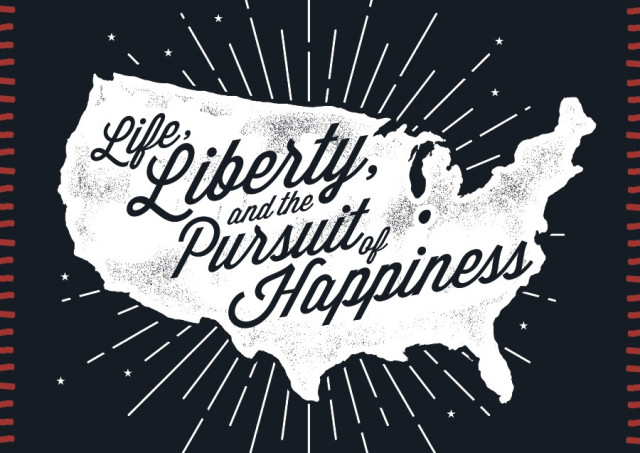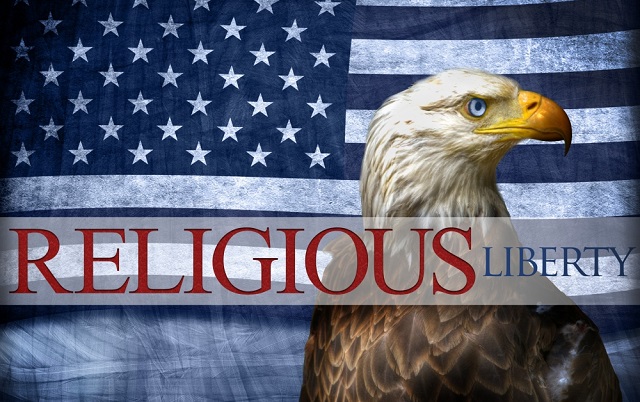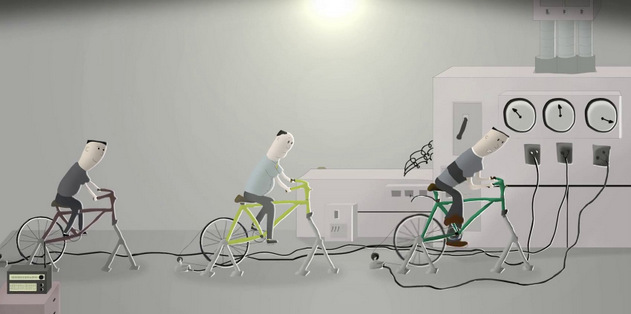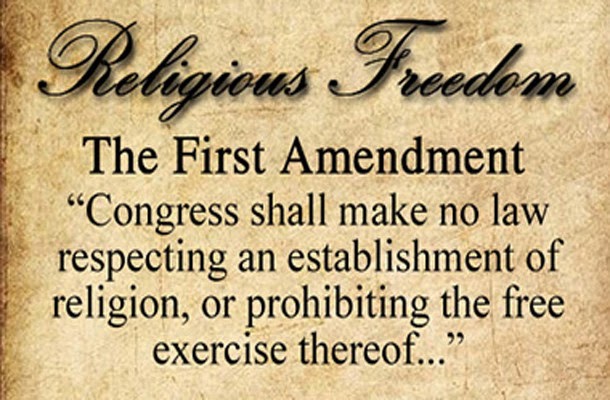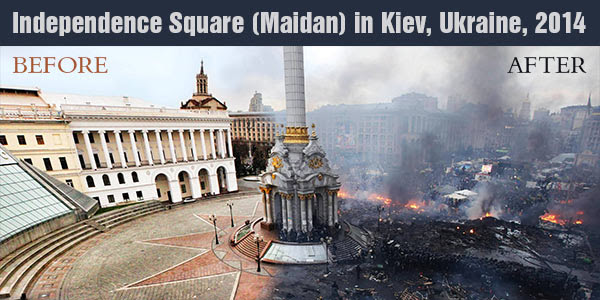Money at the margin, not everything for money.
It’s not unusual to hear market systems criticized for relying too much on money, as if this comes at the expense of the altruistic relationships that would otherwise prevail. Ever heard the phrase “only in it for the money”? It’s as if self-interest has a stink that can corrupt transactions that generate benefits for others, turning them into offenses. So this line of thinking suggests reliance on market systems based in self-ownership would be tantamount to creating a world where people only do things for money, and lose the ability to relate to one another on any other terms.
People Don’t Do Everything for Money
One need not go far to see the falsity of the claim that everything is done for money in market systems. My situation is but one example: I have a Ph.D. in economics from a top graduate program. It is true that, as a result, I have an above-average income. But I did not do it all for the money. One of my major fields was finance, but if all I cared about was money—as my wife reminds me when budgets are particularly tight—I would have gone into finance rather than academia and made far more. But I like university students. I think what I teach is important, and I value the ability to pass on whatever wisdom I have to offer. I like the freedom and time to pursue avenues of research I find interesting. I enjoy the ability to tell and write the truth as I see it (particularly since I see things differently from most) and I prefer a “steady job” to one with far more variability.
Every one of those things I value has cost me money. Yet I chose to be a professor (and would do it again). While it’s true that the need to support my family means that I must acquire sufficient resources, many things beyond just money go into choosing what I do for a living. And the same is true for everyone.
Ask any acquaintances of yours who they know that only does things for money. What would they say? They would certainly deny it about themselves. While they might apply this characterization to people they don’t know, beyond Dickens’s Ebenezer Scrooge and his comic book namesake, Scrooge McDuck, they would be unable to provide a single convincing example. If market critics performed that same experiment, they would recognize that they are condemning a mirage, not market arrangements.
Confusing Ends and Means
Beyond the fact that all of us forego some money we could earn for other things we value, the fact that every one of us gives up money we have earned for a vast multitude of goods, services, and causes also reveals that individuals don’t just do things for the money. Each of us willingly gives up money up to further many different purposes we care about. Money is not the ultimate end sought, but a means to a vast variety of possible ends. Mistakenly treating money as the end for which “people do everything” is fundamentally flawed—both for critics of the market and for the participants in it.
To do things for money is nothing more than to advance what we care about. In markets, we do for others as an indirect way of doing for ourselves. This logic even applies to Scrooge. His nephew Fred’s assertion that he doesn’t do any good with his wealth is false; he lends to willing borrowers at terms they find worth meeting, expanding the capital stock and the options of others.
That an end of our efforts is to benefit ourselves, in and of itself, merits neither calumny nor congratulations. Money’s role is that of an amoral servant that can help us advance whatever ends we ultimately pursue, while private property rights restrict that pursuit to purely voluntary arrangements. Moral criticism cannot attach to the universal desire to be able to better pursue our ends or to the requirement that we refrain from violating others’ rights, only to the ends we pursue.
To do things for money in order to achieve world domination could justify moral condemnation. But the problem is that your intended end will harm others, not the fact that you did some things for money, benefitting those you dealt with in that way, to do so. Using money to build a leprosarium, as Mother Teresa did with her Nobel Prize award, does not justify moral condemnation. Similarly, using money to support your family, to live up to agreements you made with others, and to try not to burden others is being responsible, not reprehensible. Further, there is nothing about voluntary arrangements that worsens the ends individuals choose. But by definition, they place limits on ends that require harming others to achieve them.
It is true that money represents purchasing power that can be directed to ends others object to. Money is nothing more than a particularly powerful tool, and all tools can be used to cause harm. Just as we shouldn’t have to forego the benefits of hammers because somebody could cause harm with one, there’s no reason to think society would be better off without money or the market arrangements it makes possible just because some people can use those things for harmful ends. And if the ends aren’t actually causing harm, then the objections over them come down to nothing more than disagreements about inherently subjective valuations. Enabling a small class of people to decide which of these can be pursued and which can’t makes everyone worse off.
Those who criticize people for doing everything for money also do a great deal for money themselves. How many campaigns have religious groups and non–profit organizations run to get more money? How much of government action is focused on getting more money? Why do the individuals involved not apply the same criticism to themselves? Because they say they will “do good” with it. But every individual doing things for money also intends to do good, as he or she sees it, with that money. And if we accept that people are owners of themselves, there is no obvious reason why another’s claims about what is “good” should trump any “good” that you hold dear, or provide for another in service through exchange.
Criticizing a Straw Man
Given that the charge that “people do everything for money” in market systems is both factually wrong and logically lame, why do some keep repeating it? It creates a straw man easier to argue against than reality, by misrepresenting alternatives at both the individual and societal level.
At the individual level, this assertion arises when people disagree about how to spend “public” resources (when we respect private property, this dispute disappears, because the owner has the right to do as he or she chooses with it, but cannot force others to go along with or allow it; “public” resources are obtained by force). The people who wish to spend other people’s confiscated resources in ways the original owners disagree with claim a laundry list of caring benefits their choice would provide, but foreclose similar consideration of the harms that would be caused to those they claim care only about money. That, in turn, is used to imply that the purportedly selfish person’s claims are unworthy of serious attention. (Something similar happens when politicians count “multiplier effects” where government money is spent, but ignore the symmetrical negative “multiplier effects” radiating from where the resources are taken.)
This general line draws support from a misquotation of the Bible. While more than one recent translation of 1 Tim 6:10 renders it “the love of money is a root of all sorts of evils,” the far less accurate King James Version rendered it, “the love of money is the root of all evil.” When one simply omits or forgets the first three words, it becomes something very different—“money is the root of all evil.” Portray those who disagree with your “caring” ends as simply loving money more than other people, and they lose every argument by default. Naturally, it’s a seductive strategy.
At the societal level, criticizing market systems as tainted by the love of money implies that an alternate system would escape that taint and therefore be morally preferable. By focusing attention only on an imaginary failing of market systems that would be avoided, it allows the implication of superiority to be made without having to demonstrate it. This is a version of the Nirvana fallacy.
By blaming monetary relationships for people’s failings, “reformers” imply that taking away markets’ monetary nexus will somehow make people better. But no system makes people angels; all systems must confront human flaws and failings. That means a far different question must be addressed: How well will a given system do with real, imperfect, mostly self-interested people? And it shouldn’t be necessary, but most political rhetoric makes a second question nearly as important: Does the given system assume that people are not imperfect and self-interested when they have power?
Given that the utopian alternatives offered always involve some sort of socialism or other form of tyranny, an affirmative case for them cannot be made. Only by holding the imaginary “sins” of market systems to impossible standards, while holding alternatives to no real standards except the imagination of self-proclaimed reformers, can that fact be dodged. But there’s nothing in history or theory that demonstrates that overwriting markets with expanded coercion makes people more likely to do things for others. As Anatole France noted, “Those who have given themselves the most concern about the happiness of peoples have made their neighbors very miserable.” And as economist Paul Heyne wrote, “Market systems do not produce heaven on earth. But attempts by governments to repress market systems have produced . . . something very close to hell on earth.”
Money at the Margin
Money is not everything. But changes in the amounts of money to be earned or foregone as a result of decisions change our incentives at the many margins of choice we face, and so change our behavior. Such changes—money at the margin—are the primary means of adjusting our behavior in the direction of social coordination in a market system.
Changes in monetary incentives are how we adapt to changing circumstances, because whatever their ultimate ends, everyone cares about commanding more resources for those purposes they care about. It is how we rebalance arrangements when people’s plans get out of synch, which is inevitable in our complex, dynamic world. In such cases, changing money prices allow each individual to provide added incentives to all who might offer him assistance in achieving his ends, even if he doesn’t know them, doesn’t know how they would do so, and doesn’t think about their well–being (in fact, it applies even if he dislikes those he deals with, as long as the benefits of the arrangements exceed his perceived personal cost of doing so).
For instance, consider a retail gas station faced with lengthy lines of cars. That reflects a failure of social cooperation between the buyers and the seller. Those in line are revealing by their actions that they are willing to bear extra costs beyond the current price to get gas, but their costs of waiting do not provide benefits to the gas station owner. So the owner will convert those costs of waiting in line, which are going to waste, into higher prices (unless prevented by government price ceilings or antigouging directives) that benefit him. That use of money at the margin benefits both buyers and sellers and results in increased amounts of gasoline supplied to buyers.
Further, people can change their behavior in response to price changes in far more ways than “outsiders,” unfamiliar with all the local circumstances, realize. This makes prices, in turn, far more powerful than anyone recognizes.
Consider water prices. If water prices rose, your first thought might well be that you had no choice but to pay them. You might very well not know how many different responses people have already had to spikes (ranging from putting different plants in front yards to building sophisticated desalinization plants). Similarly, when airline fuel prices rose sharply, few recognized in advance the number of changes that airlines could make in response: using more fuel-efficient planes, changing route structures, reducing carry-on allowances, lightening seats, removing paint, and more.
If people recognized how powerful altered market prices are in inducing appropriate changes in behavior, demonstrated by a vast range of examples, they would recognize that the cost of abandoning money at the margin, which enables these responses by offering appropriate incentives to everyone who could be of assistance in addressing the problem faced, would enormously exceed any benefit.
Massive Improvements in Social Cooperation
If we could just presume that individuals know everyone and all the things they care about and the entirety of their circumstances, we could imagine a society more focused on doing things directly for others. But in any extensive society, there is no way people could acquire that much information about the large number of people involved. Instead, this would extend the impossible information problem that Hayek’s “The Use of Knowledge in Society” laid out in regard to central planners. You can care all you want, but that won’t give you the information you need. Beyond that insuperable problem, we would also have to assume that people cared far more about strangers than human history has evidenced.
Those information and other-interestedness requirements would necessarily dictate a very small society. But the costs of those limitations, if people recognized them, would be greater than virtually anyone would be willing to bear.
Without a broad society, the gains from cross-pollination of ideas and different ways of doing things would be hamstrung. The gains from comparative advantage (areas and groups focusing on what they do best, and trading with others doing the same thing) would similarly be sharply curtailed. A very small society would eliminate the incentive for large-scale specialization (requiring more extensive markets) and division of labor that makes our standard of living possible. Virtually every product that involves a large number of separate arrangements—such as producing cars or the gasoline to power them—would disappear, because the arrangements would be overwhelmed by the costs of making them without money as the balance-tipper. As Paul Heyne once put it,
The impersonal transactions that constitute the market system . . . have, over the course of a few centuries, enormously expanded our ability to provide [for] one another . . . while at the same time vastly extending our freedom both by offering us a multitude of options and by freeing us from arbitrary restrictions on our choice of life goals and on the means to further those goals. To reject impersonal transactions as unethical amounts to rejecting the foundation of modern life.
Conclusion
A pastiche of false premises leads many to reject out of hand what Hayek recognized as the “marvel” of market systems, which, if they had arisen from deliberate human design, “would have been acclaimed as one of the greatest triumphs of the human mind.” This is great for those who seek power over others—they have an endless supply of bogeymen to promise to fight.
But it’s a disaster for social coordination. The record of disasters inflicted on society demonstrates what follows when voluntary arrangements are replaced by someone else’s purportedly superior vision.
But it’s often forgotten. We must continue to make the case.
Gary M. Galles is a professor of economics at Pepperdine University.
EDITORS NOTE: The featured image is courtesy of FEE and Shutterstock.





